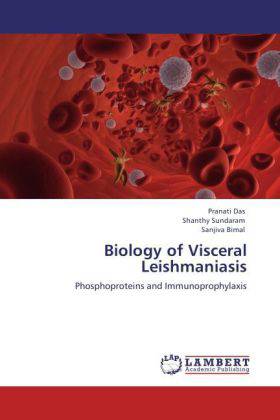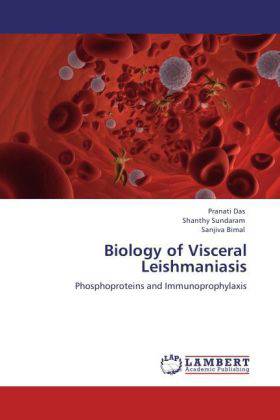
- Afhalen na 1 uur in een winkel met voorraad
- Gratis thuislevering in België vanaf € 30
- Ruim aanbod met 7 miljoen producten
- Afhalen na 1 uur in een winkel met voorraad
- Gratis thuislevering in België vanaf € 30
- Ruim aanbod met 7 miljoen producten
Zoeken
Biology of Visceral Leishmaniasis
Phosphoproteins and Immunoprophylaxis
Pranati Das, Shanthy Sundaram, Sanjiva Bimal
Paperback | Engels
€ 73,45
+ 146 punten
Omschrijving
Visceral leishmaniasis (VL) or kala-azar(KA) is a disease of the reticuloendothelial system caused by obligate intracellular parasite, Leishmania spp. (L. donovani, L. chagasi, L. infantum). The infective promastigotes invade the macrophages and convert into aflagellar amastigotes that survive and proliferate within the macrophages leading to progressive infection. To ensure its survival within a cell that is armed to kill invaders, Leishmania is known to downregulate macrophage activation leading to suppressed T cell function. The present study was undertaken with the objective to identify such components of Leishmania donovani that have a role in inducing a protective Th1 response. Phosphoproteins of Leishmania donovani were screened to establish their role in host-parasite interaction and ensuing cell-mediated immunity, for a possible impact on several different aspects of the disease.Macrophage and T-cell responses were studied in vitro, followed by a study of immunoprophylactic potential of selected phosphoproteins in in vivo mice model.
Specificaties
Betrokkenen
- Auteur(s):
- Uitgeverij:
Inhoud
- Aantal bladzijden:
- 192
- Taal:
- Engels
Eigenschappen
- Productcode (EAN):
- 9783847320333
- Verschijningsdatum:
- 27/12/2011
- Uitvoering:
- Paperback
- Afmetingen:
- 150 mm x 220 mm
- Gewicht:
- 271 g

Alleen bij Standaard Boekhandel
+ 146 punten op je klantenkaart van Standaard Boekhandel
Beoordelingen
We publiceren alleen reviews die voldoen aan de voorwaarden voor reviews. Bekijk onze voorwaarden voor reviews.








